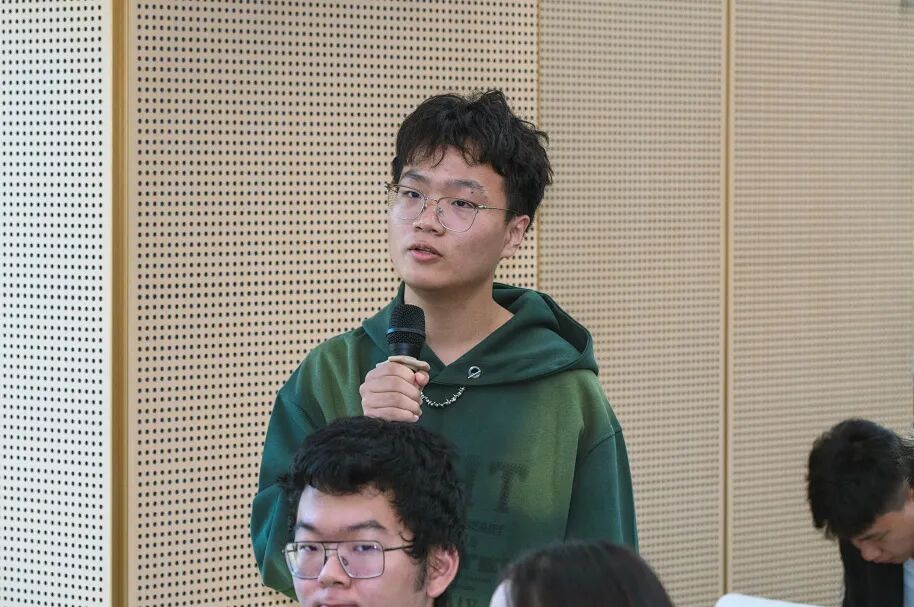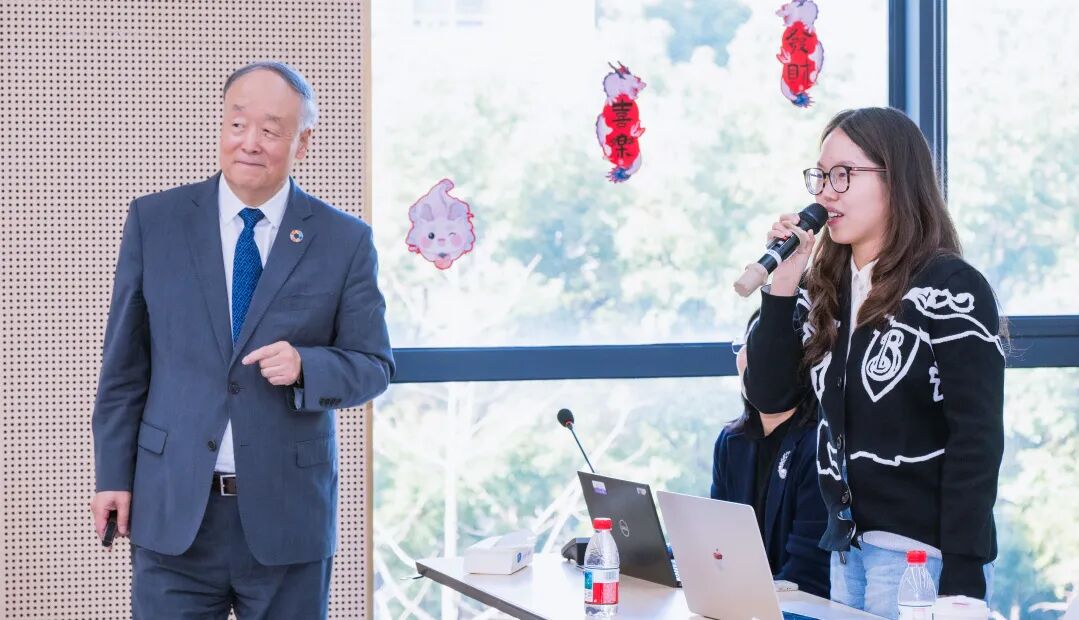
July 2023, Paris, France.
At the headquarters of UNESCO, students and teachers from the “Global SPEITers” practice group of the SJTU Paris Elite Institute of Technology (SPEIT) met for the first time with Professor Yang Jin, then the Representative of China with the rank of Ambassador to UNESCO. That one-and-a-half-hour face-to-face exchange deeply inspired both the students and teachers, leaving them still eager for more.
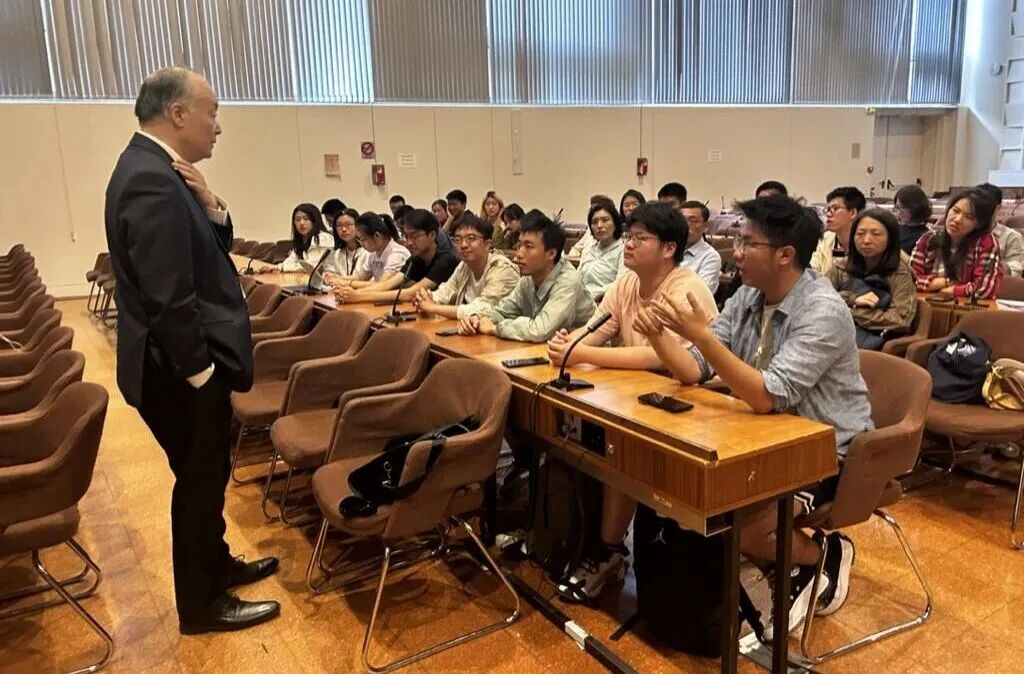
October 2025, Shanghai, China.
In the autumnal campus of Shanghai Jiao Tong University, the students and teachers reunited with Professor Yang Jin. On the afternoon of the 29th, the 7th Sino-French Excellence Lecture Series and the 16th SJTU Youth Global Competence Lecture were grandly held in Room 205 of the SPEIT Building.
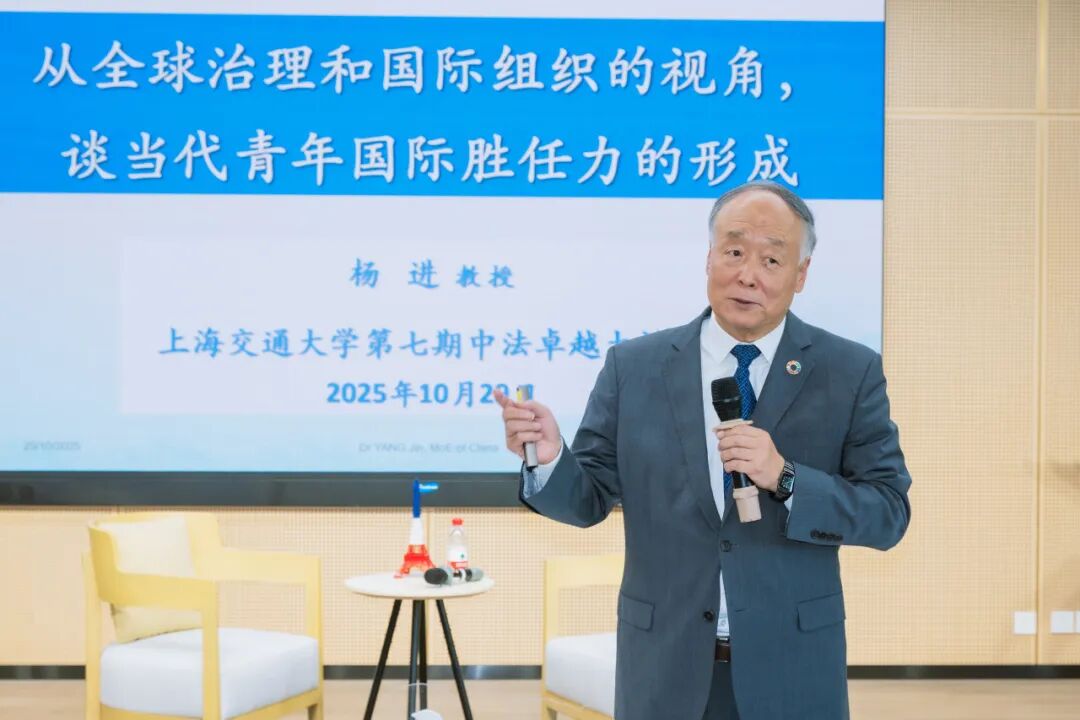
Professor Yang delivered a profound and broad-ranging keynote speech titled “Viewing Contemporary Youth’s Global Competence from the Perspective of Global Governance and International Organizations.” The event was attended by Xiong Zhenhua, Secretary of SPEIT; Chen Cailian, Chinese Dean; Zied Moumni, French Dean; Yao Xue, Deputy Secretary; and more than a hundred faculty members and students, all listening attentively to this intellectual feast.
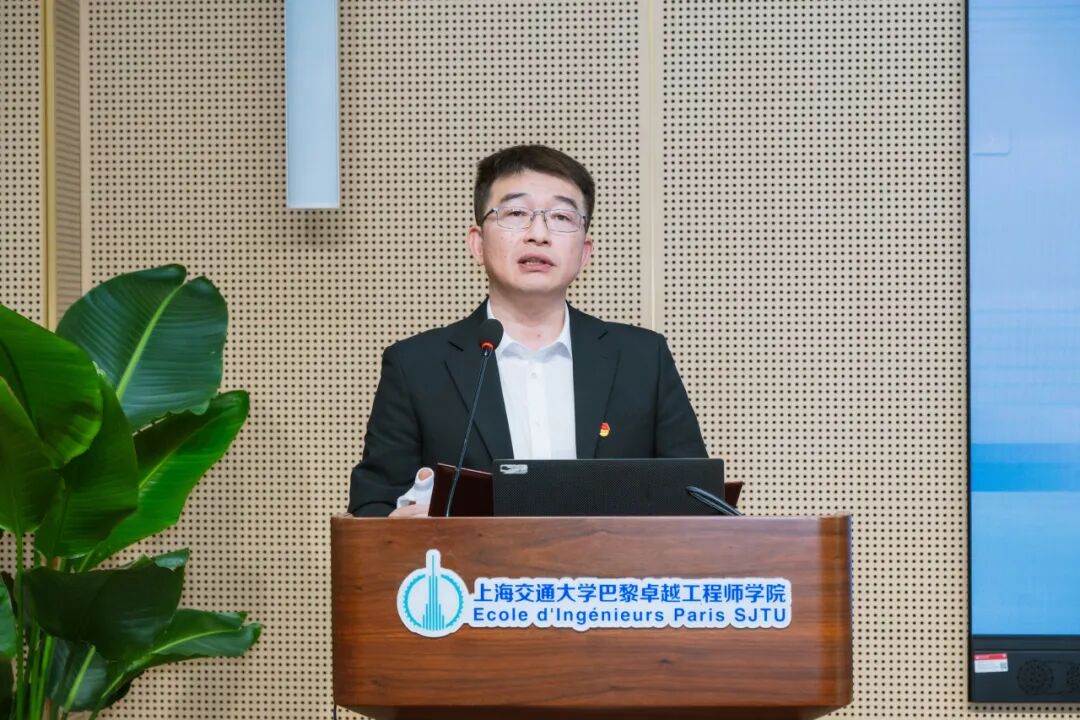
Xiong Zhenhua first extended a warm welcome to Professor Yang in his opening remarks. He recalled the unforgettable experience of SPEIT students and teachers engaging with Professor Yang in Paris during the summer of 2023. He encouraged students to cherish this lecture as a valuable opportunity to draw wisdom and strength from Professor Yang’s insights and to further enhance their global competence and cross-cultural communication abilities.
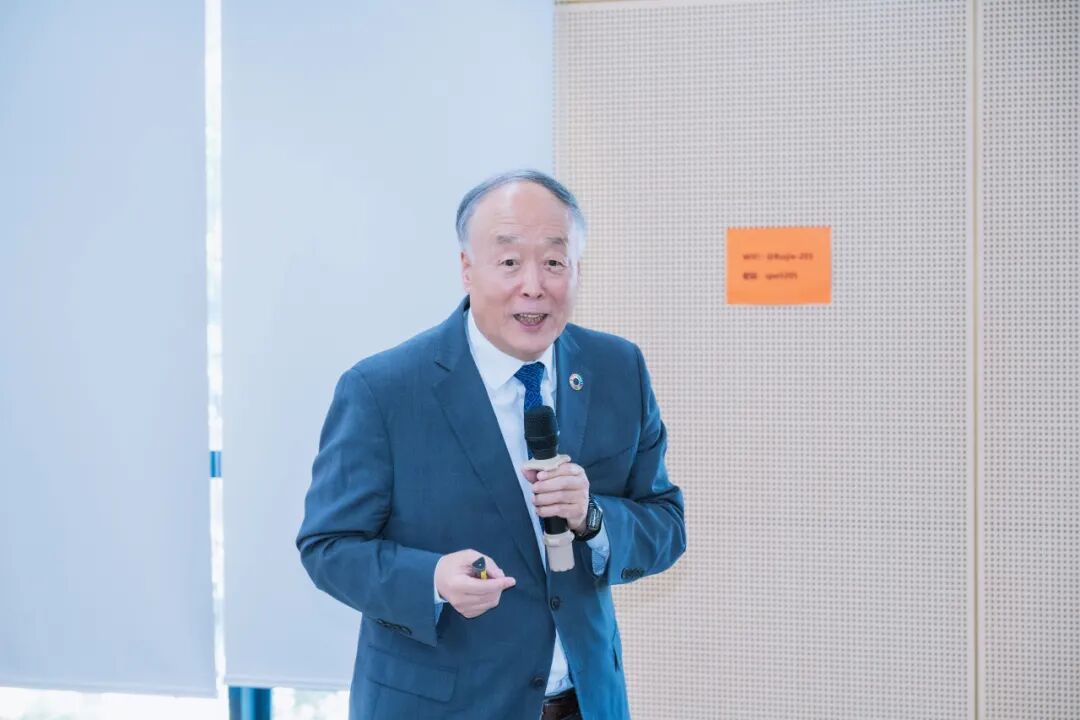
Then, with his characteristic humor and charm, Professor Yang officially began his lecture. He shared that he obtained his bachelor’s degree in Mechanical Manufacturing and Automation from Xi’an Jiaotong University. Returning now to Shanghai Jiao Tong University—an institution sharing the same roots—he felt a deep sense of familiarity among the young engineering students. Drawing on his forty years of work experience at the Ministry of Education and seventeen years of overseas study and professional service, Professor Yang elaborated on the concept of global governance, the operation of international organizations, and the cultivation of youth global competence from three dimensions, sharing his understanding and insights.
I. From “Rule” to “Governance”:
Understanding the Logic and Challenges of Global Governance
At the beginning of his report, Professor Yang started with the concept of “governance,” systematically explaining its meaning and characteristics. He pointed out that “governance” differs from “management” and “rule”; it is based on consultation, negotiation, and consensus—an interactive and cooperative process among diverse actors, which constitutes the core logic of global governance. The United Nations is the epitome of such “consultative governance.” He humorously remarked, “The UN Secretary-General is not the ‘President of the Earth,’ but rather the coordinator and consensus-builder among 193 member states.”
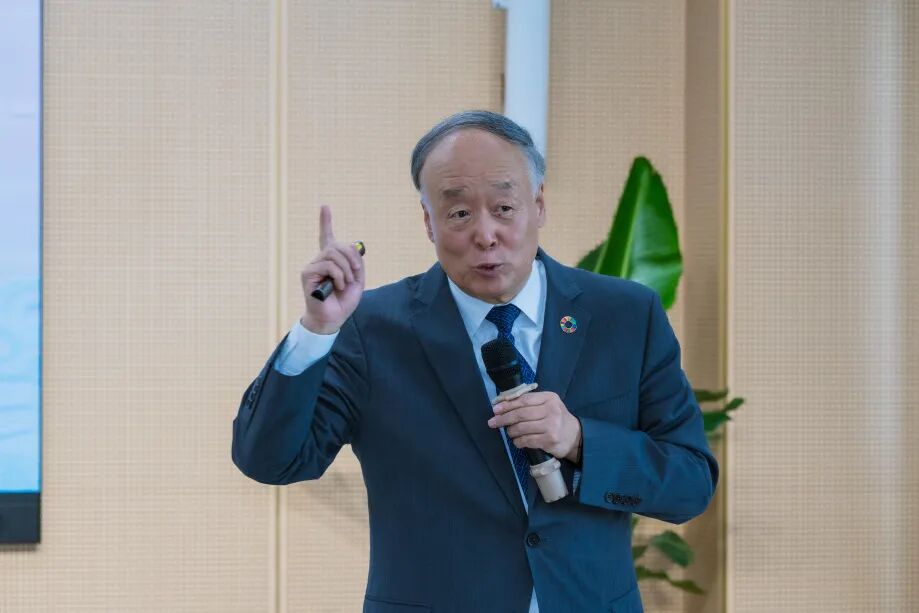
At present, global governance faces challenges such as the rise of unilateralism and protectionism, intensifying regional conflicts, and declining international trust. The post–World War II international order is undergoing profound transformation. Non-Western countries and the Global South, represented by China, are becoming increasingly active in the governance system. Citing President Xi Jinping’s Global Governance Initiative proposed at the SCO Summit, Professor Yang emphasized that reforming global governance should be grounded in the common development of humankind, guided by equality, rule of law, and concrete action—demonstrating China’s sense of responsibility and commitment to transforming the global governance system.
II. International Organizations:
The Platforms of Global Governance
When discussing the practical carriers of global governance, Professor Yang provided a detailed explanation of the classification and roles of international organizations. He noted that international organizations are key supporting forces in promoting global governance. He distinguished between intergovernmental organizations (such as the United Nations, G20, and BRICS mechanism) and non-governmental organizations (such as the Red Cross, World Wildlife Fund, and World Economic Forum). The latter far outnumber the former and, though long overlooked, deserve greater recognition for their unique value in global governance and public affairs.
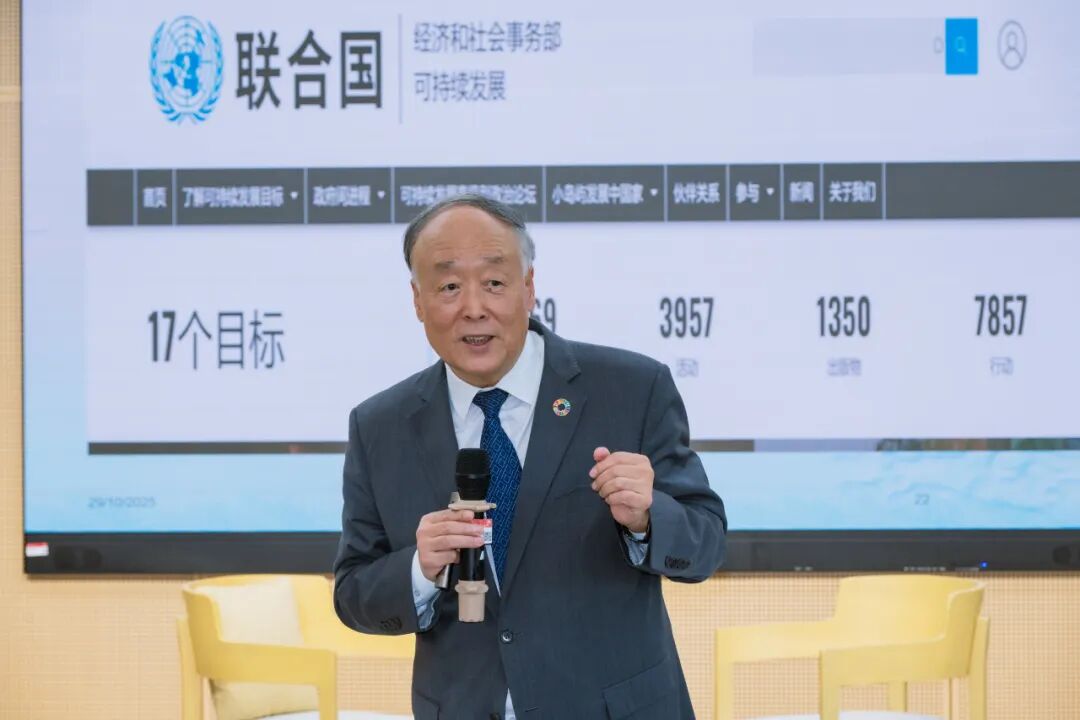
He also reviewed China’s historical relationship with the United Nations: China is a founding member of the UN; in 1945, Comrade Dong Biwu participated in the San Francisco Conference as the representative of the Communist Party of China; and in 1971, UN General Assembly Resolution 2758 of the 26th session restored the lawful seat of the People’s Republic of China.
Today, the 193 UN member states are striving toward the 17 Sustainable Development Goals (SDGs) of the 2030 Agenda. However, due to the pandemic, wars, and food crises, only 17% of the goals are on track—making the coordinating and mobilizing roles of international organizations more crucial than ever.
Professor Yang also pointed out that China currently faces the situation of “high financial contributions but low personnel participation” in international organizations. Many Chinese applicants often lack strong language proficiency, professional capability, and international project experience. Drawing from his extensive experience and a deep understanding of organizational statutes, Professor Yang summarized the key qualities sought by international organizations: inclusive, honest, humble, and humane values, coupled with strong skills in collaboration, communication, analysis, planning, innovation, adaptability, and cross-cultural competence.
III. Cultivating Youth Global Competence:
The Dual Path of Cross-Cultural and Professional Development
Professor Yang emphasized that young students at SPEIT, with their unique interdisciplinary background in “French + Engineering,” possess incomparable advantages over previous generations. In the context of today’s technological revolution, students with engineering backgrounds play irreplaceable roles in international organizations. The key lies in integrating professional expertise with a global perspective—understanding international rules and mastering cross-cultural communication and coordination.
To help young people enhance their global competence, Professor Yang offered several concrete suggestions. He stressed that young people should first cultivate empathy and a sense of mission, then embrace global concerns such as poverty and educational inequality, and practicing the concept of a community with a shared future for mankind. Second, they should respect cultural diversity, avoid stereotypes, and learn active listening and cross-cultural communication to understand different ways of thinking and doing.
Furthermore, he encouraged students to learn through “learning by doing,” gaining experience through real-world projects to develop planning and management capabilities. At the same time, they should deepen their expertise to become specialists in their fields while mastering the working languages of international organizations—particularly English and French. He emphasized that French, as an official language in more than 30 countries, is by no means a “minor language” and plays a vital role in international affairs.
At the end of the report, Professor Yang encouraged the students with his signature warmth and humor:
“Just like you, I come from an engineering background. Engineering thinking is not only about technical logic—it’s also the ability to solve complex problems.”
IV. Interactive Dialogue
During the Q&A session, students discussed topics such as “career opportunities for those with a French + engineering background in international organizations” and “how college students can contribute to educational equality.”
Professor Yang responded that talents combining French proficiency and engineering expertise are in high demand at specialized international institutions such as the World Meteorological Organization (WMO), United Nations Industrial Development Organization (UNIDO), International Telecommunication Union (ITU), and International Energy Agency (IEA). He suggested that students start by engaging in domestic educational support projects to build experience, then gradually participate in international initiatives, leveraging alumni networks and corporate support to promote public-interest programs.
This sharing session not only deepened students’ understanding of global governance and the operation of international organizations but also clarified their pathways for developing global competence. Drawing on his own experiences, Professor Yang encouraged young students to seize the opportunities of the era, make up for historical gaps, and contribute their youth, professional excellence, and global vision to China’s participation in global governance and the building of a community with a shared future for mankind.
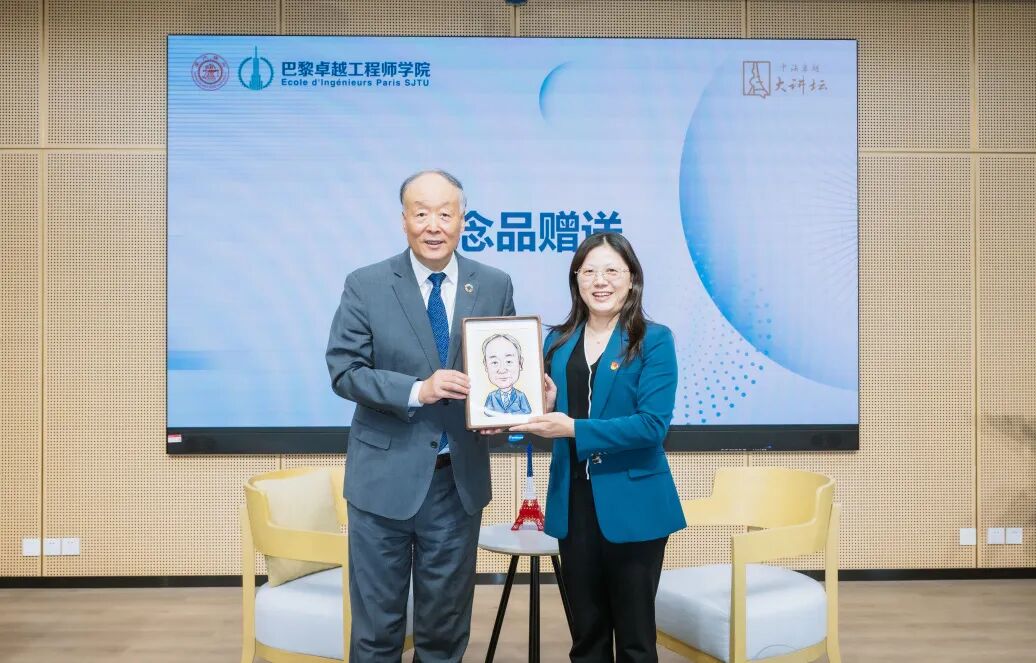
Finally, Dean Chen Cailian presented Professor Yang with a customized caricature portrait. The entire session concluded in a warm and inspiring atmosphere.

This autumn reunion was not only a feast of ideas but also a resonance that transcended time and space.
SPEIT will continue to inspire more young students through brand events such as the Sino-French Excellence Lecture Series—encouraging them to connect the world through engineering thinking, shoulder the responsibilities of the times with global vision, and showcase the rationality, confidence, and openness of Chinese youth on the world stage.
About the Sino-French Excellence Lecture Series

The Sino-French Excellence Lecture Series is a signature program founded by the SJTU Paris Elite Institute of Technology (SPEIT). Upholding the mission of broadening horizons, inspiring thought, and cultivating aspirations, the series invites distinguished figures—including renowned scholars with study experience in France, senior corporate executives, and technical experts—to share their growth journeys and insights into industry trends. It aims to help students expand their international vision, plan their future development, and appreciate the beauty of Sino-French cultural integration.







